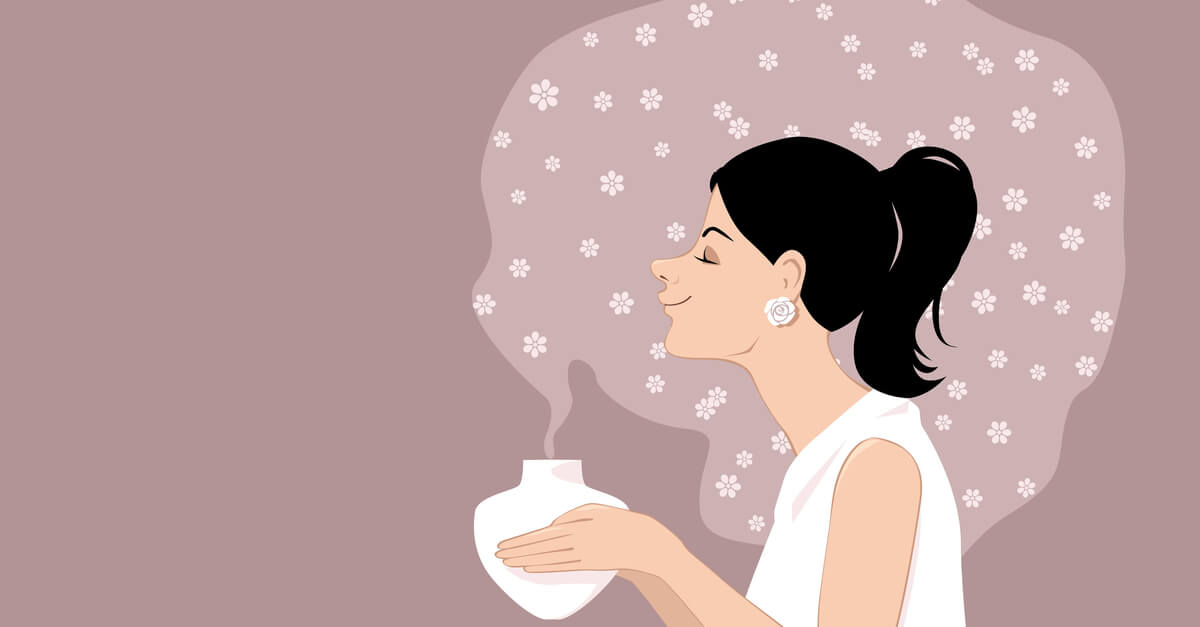Aromatist or aromas psychology is a young science that studies the relationship between aromas and the changes they cause in our mood. Aromatist and aroma and gynecology focuses on the impact caused by different odors, taking into account the different emotional reactions that provoke in our behavior.
It is necessary to differentiate aromatherapy from aromacology, aromatherapy is a therapeutic supplement that focuses on the use of essential oils for the prevention and treatment of diseases and, therefore, obtaining physiological results, however, aroma and gynecology focuses on the psychological benefits that certain fragrances can bring us.
- While aromatherapy is based on the physical use of natural aromas by applying massages or ingestion.
- Aroma and gynecology uses synthetic fragrances and fragrances as well as essential oils.
- And studies the reaction of our nervous system to exposure to different aromas.
- Unrelated to the natural limitations of the species.
The science of aromacology was born in Japan in the early twentieth century, when laboratory studies of the active ingredients of natural aromas produced by plants begin, analyzing and ingesting them. In the 1970s the name aromacology was invented to separate it from its fathers, aromatherapy. From this moment on, a scientific field emerges and focuses on the study of how aromas affect our mood and therefore our behavior.
Smell is one of the most studied senses in the last two decades, with interesting results, so the sensations that arise from the different aromas and the reactions they provoke have become evident through different experiences, hence the great Part of the research done by aroma and gynecology researchers focus on the functioning of the limbic system.
The limbic system is considered to be the place where emotions and certain instinctive behaviors arise, such as eating behaviors (hunger, thirst, satiety), emotions such as fear, anger or motivation, and instincts, such as sexuality or survival, which are subsequently managed by the hypothalamus.
The limbic system plays a key role in our survival; its operation is not subject to our will and its response can be very intense in the face of the stimuli that activate it. The limbic system plays a key role in aromacology.
Perfumes travel through the air in small particles that enter our body through the nostrils. Our nose was designed to analyze some of the incoming air, so that millions of olfactory receptor cells, located in the internal nasal cones, capture the chemical information of the different aromas.
Olfactory receptor cells, thanks to more than 1000 olfactory receptor proteins stored in the hair, are able to transform the chemical signal obtained from the aroma into an electrical impulse, information that is transmitted to the brain. There, it will be processed, stored and delivered to the limbic system for treatment.
Today we know that the stimulation of the limbic system caused by smell can change our mood (make us happy or sad, etc. ), it can also change our readiness to a state of alertness or rest, our appetite, our attention, our memory, etc. Determining by a scientific method this relationship between aromas and changes on a psychological level is undoubtedly the objective of aromacology.
“In the smell lies the very essence of the soul, permeates everything in a relevant way and has the ability to open the doors of the unconscious, from where the most pleasant and painful scenes are sown. ” – Mercedes Pinto Maldonado-
With the psychological stimulation caused by aromas, two well-differentiated evolutionary processes occur:
The primary process arises from the direct reaction of our psyche to the experience of an aroma, only depends on the aroma or smell generated, examples of this primary stimulus are odors or foods that?Our sexual desire.
The secondary process derives from the reaction to an aroma based on olfactory memory, that is, the aroma is recognized in the files of our memory, where previously it was linked to a set of sensations that our olfactory memory is able to store, and reactivate. the sensations found in the aromatic codes of our brain.
An example of this secondary process is to stop next to a baked cake and feel how its aroma touches the memories of our childhood (images, sounds, thermal sensations, feelings, emotions, etc. ), with a level of clarity that no other brain the storage system is able to produce.
“Nothing is more memorable than a smell. An odor can be unexpected, momentary and ephemeral, but can it lead to a children’s summer?. – Diane Ackerman-

